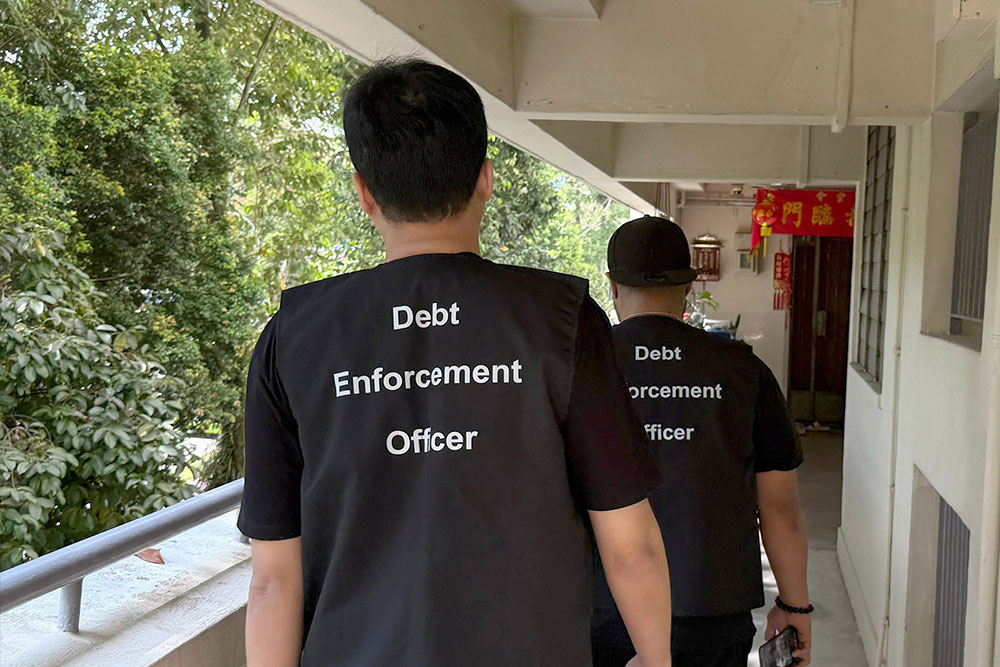
Here’s some important information about debt collection agencies in Singapore:
Licensing Requirement: Debt collection agencies in Singapore are required to be licensed by the Ministry of Law (MinLaw) under the Debt Collection (Licensing) Regulations. The license ensures that these agencies adhere to a set of ethical guidelines and legal standards in their collection practices.
Debt Collection Guidelines: Licensed agencies must comply with the Debt Collection Guidelines set by MinLaw, which aim to ensure fair treatment of debtors and prevent harassment or intimidation during the debt collection process.
Debt Recovery: These agencies are hired by creditors to recover outstanding debts from individuals or businesses. They use various methods, including phone calls, emails, letters, and personal visits, to contact debtors and urge them to settle their debts.
Negotiation: Debt collection agencies may also negotiate repayment terms with debtors, offering installment plans or alternative solutions to settle debts. They often act as intermediaries to prevent direct confrontation between creditors and debtors.
Legal Action: If informal methods fail, debt collection agencies may initiate legal proceedings on behalf of creditors. This could involve filing a claim in court or pursuing other legal means to recover the debt, such as garnishing wages or seizing assets.
Initial Contact: The agency will typically send a series of reminders through letters or phone calls to inform the debtor of the overdue payment. This is often the first step in the collection process.
Negotiation and Repayment Plans: If the debtor is unable to pay the full amount at once, the agency may work with them to negotiate a repayment plan. Agencies can offer structured repayment schedules or propose a debt restructuring agreement.
Escalation: If informal collection methods do not work, the agency may escalate the matter by pursuing legal action, which could involve taking the debtor to court or applying for debt recovery through legal means.
Fair Debt Collection Practices: Debt collection agencies are prohibited from using aggressive tactics such as harassment, threats, or violence to recover debts. They must follow ethical practices, ensuring that the debtor is treated with respect and dignity throughout the process.
Consumer Protection Laws: Agencies must comply with Singapore’s Consumer Protection (Fair Trading) Act (CPFTA), which protects consumers from unfair business practices, including improper debt collection tactics.
Data Protection: Agencies must also adhere to the Personal Data Protection Act (PDPA), which governs the collection, use, and disclosure of personal data, ensuring that debtors’ privacy rights are respected.
Service Charges: Debt collection agencies typically charge a fee based on the amount of debt recovered. The fee can vary depending on the agency, the complexity of the case, and the recovery rate. Some agencies charge a fixed fee, while others may take a percentage of the amount recovered.
Additional Costs: If the case progresses to legal action, the debtor may also be liable for legal fees or court costs, which are usually added to the debt amount.
Reputation: When selecting a debt collection agency, it is important to choose one with a strong reputation and a proven track record of ethical and successful debt recovery. Agencies should be licensed and compliant with Singapore’s regulations.
Experience: Look for agencies with experience in collecting the type of debt you are dealing with, whether it’s personal loans, business debts, or consumer credit.
Transparency: A reliable agency should be transparent about its fees, processes, and the steps involved in debt collection. Avoid agencies that make unrealistic promises or charge hidden fees.
Mediation Services: In some cases, debtors and creditors may opt for mediation rather than aggressive collection. Mediation services, offered by organizations like the Singapore Mediation Centre (SMC), provide a neutral platform to help resolve disputes and reach mutually agreeable solutions.
Small Claims Tribunal: For smaller debts (up to SGD 20,000), creditors may file a claim with the Small Claims Tribunal for a quicker, less expensive resolution without going through the full legal process.
Legal Framework: The legal framework for debt collection in Singapore includes the Civil Law Act, the Contracts (Rights of Third Parties) Act, and the Debt Collection (Licensing) Regulations. These laws ensure that debt collection is carried out in a fair, lawful, and regulated manner.
Court Proceedings: If informal collection methods fail, creditors can file a lawsuit in the State Courts or the Small Claims Tribunal for debts under SGD 20,000. If the debt exceeds this amount, civil proceedings may be initiated.
In conclusion, debt collection agencies in Singapore are essential for businesses and individuals to recover overdue payments. It is critical to choose a licensed and reputable agency that follows ethical practices and complies with local laws. By working with professionals, creditors can increase their chances of recovering debts efficiently while respecting the rights of debtors.